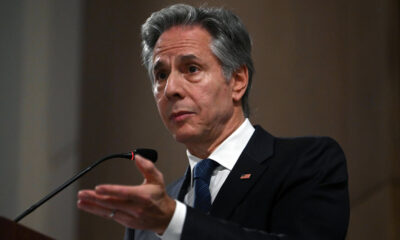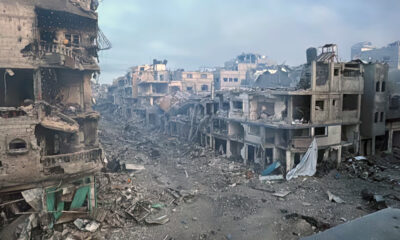Latest News
Russia’s death toll in Ukraine already the same as 10 years in Afghanistan
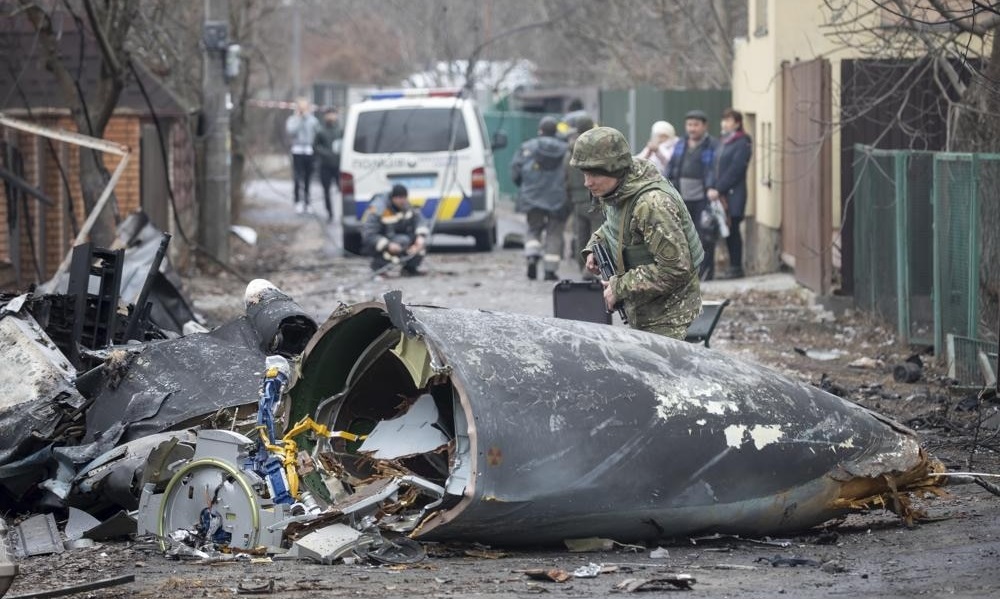
Russian troops in Ukraine have likely suffered as many losses in three months as the Soviet army did during over nine years of fighting in Afghanistan, according to a British government report.
The latest update from Britain's Defence Intelligence agency claims that "a combination of poor low-level tactics, limited air cover, a lack of flexibility, and a command approach which is prepared to reinforce failure and repeat mistakes" has led to Russia's high casualty rate among its troops in Ukraine.
According to the latest report from the General Staff of Ukraine's Armed Forces, the Russian military has sustained 29,200 casualties in Ukraine since the beginning of the war on February 24, Newsweek reported.
This number is probably inflated by Ukrainian authorities, but estimates from Western intelligence report a Russian death toll that's still much higher than the one the Kremlin is officially recognizing.
In the latest official Russian report, the country's death toll in Ukraine was just over 1,500 casualties.
Newsweek has reached out to the Russian Ministry of Defense for comment.
On May 15, the British Ministry of Defence estimated that Russia had likely lost a third of its troops sent to conduct the invasion of Ukraine.
In March, the Russian tabloid newspaper Komsomolskaya Pravda briefly published a story claiming Russian troops had suffered 10,000 casualties in Ukraine. The article was later deleted, with the tabloid's newsroom denying responsibility for it.
It’s likely that Russia has suffered even more casualties than reported by the Soviet army in Afghanistan between December 1979 and February 1989, Newsweek reported.
The Soviet invasion of Afghanistan in 1979 turned into a brutal, long conflict that saw the death of an estimated one million civilians, 90,000 Mujahideen fighters and 18,000 Afghan troops. The Soviet Union lost about 14,500-15,000 men.
Latest News
Blinken urges Syria’s HTS to learn from Islamic Emirate’s isolation
The Islamic Emirate, however, rejects Blinken’s statements and says that Afghanistan is not currently isolated from the world and that they have relations with other countries.
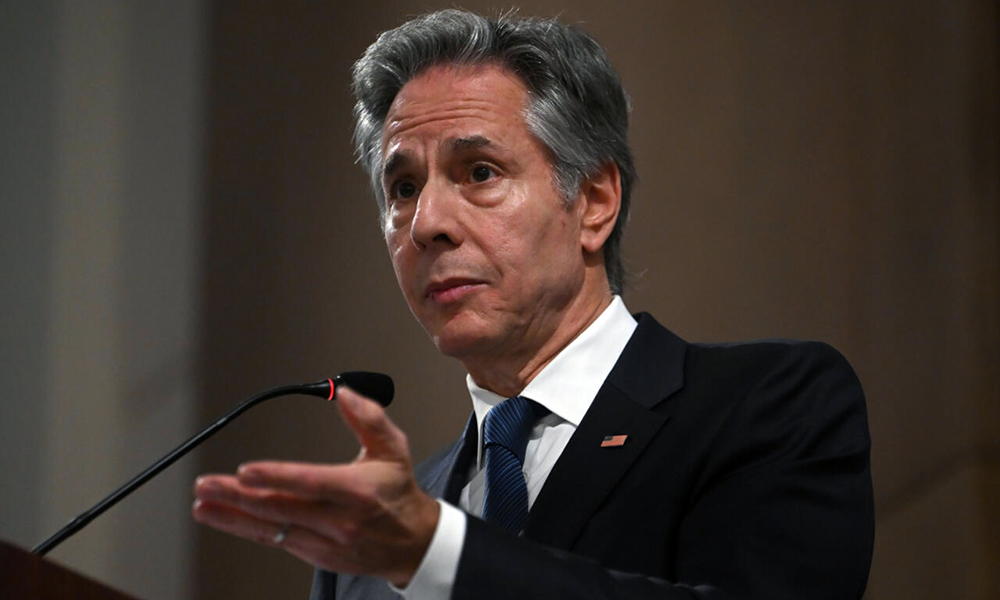
Antony Blinken, the U.S. Secretary of State, has urged Hay’at Tahrir al-Sham (HTS) in Syria to fulfill its promises of forming an inclusive government and learn from the global isolation faced by the Islamic Emirate of Afghanistan (IEA).
Speaking at the Council on Foreign Relations in New York on Wednesday, Blinken called for the establishment of a “non-sectarian” government in Syria that protects minorities and addresses security concerns.
“The Taliban (IEA) presented a more moderate face during their takeover of Afghanistan - or at least tried to - but their true nature later became evident,” he said.
As a result, the IEA remains globally isolated due to their failure to deliver on their commitments, he added.
He went on to state: “If you are an emerging group in Syria and wish to avoid such isolation, you must take specific actions to advance the country.”
Abu Mohammad al-Jolani, the leader of Syria’s HTS, has vowed that Syria will not follow the path of Afghanistan under the IEA.
Jolani has consistently advocated for protecting individual freedoms, ensuring women’s rights, and fostering a pluralistic society.
The Islamic Emirate, however, rejects Blinken's statements and says that Afghanistan is not currently isolated from the world and that they have relations with other countries.
The IEA’s spokesman Zabihullah Mujahid stated that the Islamic Emirate government has fulfilled all its commitments made in Doha.
Meanwhile, a number of Afghan experts believe that the United States is still using political and economic pressure against the Islamic Emirate to achieve its political goals.
Latest News
Two horror accidents on Kabul-Kandahar highway leave 52 dead
The Islamic Emirate has directed the relevant directorate’s to investigate the incidents to determine the exact cause of both accidents
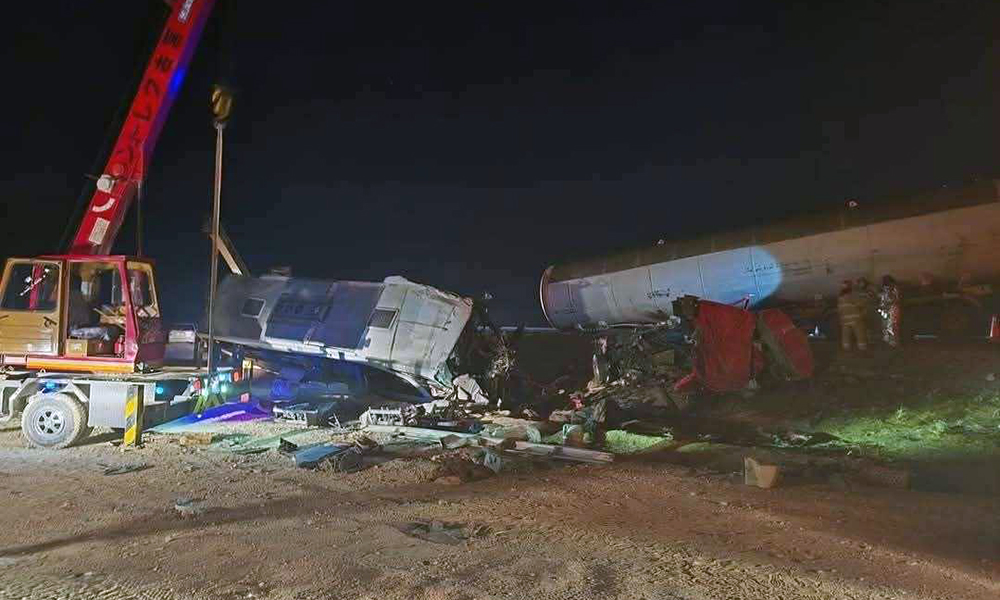
Two late-night traffic accidents in southeastern Afghanistan left at least 52 people dead and more than 65 injured, the Islamic Emirate confirmed early Thursday.
The accidents on Wednesday night happened in Ghazni province. Both accidents involved buses and one involved a fuel tanker.
According to a statement issued by the Islamic Emirate of Afghanistan (IEA) said: "It is with great regret that we learned that two fatal traffic accidents occurred on the Kabul-Kandahar highway, as a result of which 52 of our compatriots were martyred and 65 others were injured."
The Islamic Emirate has directed the relevant directorate’s to investigate the two accidents to determine the exact cause of both.
The Directorate of Information and Culture of Ghazni province meanwhile said in a statement that 47 people had died and 73 others were injured in the accidents.
The directorate stated that the injured had been taken to hospital; some of whom were in a critical condition.
One accident involved a passenger bus and a fuel tanker and the other involved a passenger bus and truck.
Latest News
There should be no distance between media and government: Stanikzai
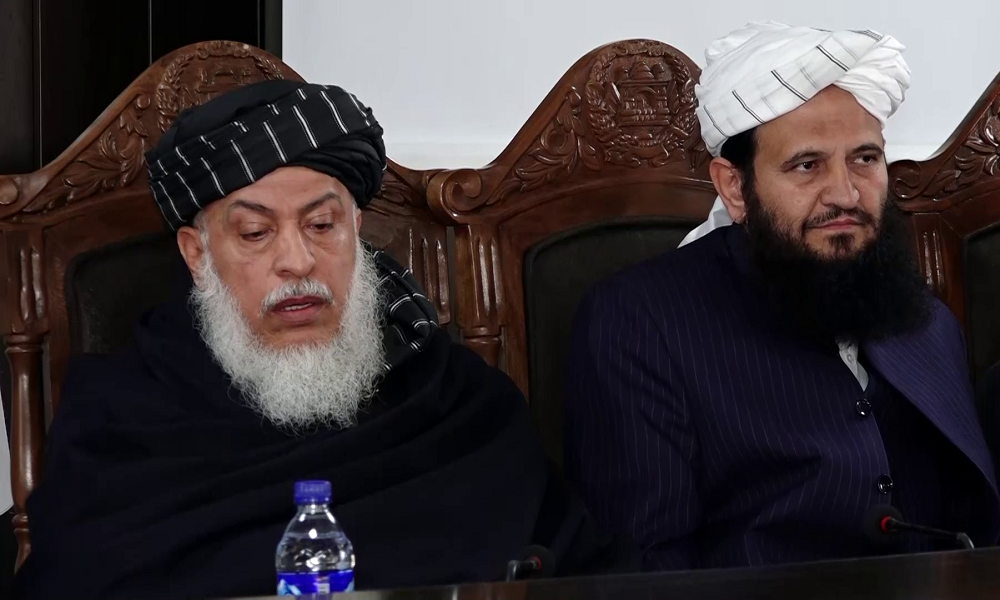
Sher Mohammad Abbas Stanikzai, the political deputy minister of foreign affairs, says media outlets should be supported in a way that there is no distance between them and the government.
Stanikzai, speaking at a seminar titled "The Role of Media in Strengthening the Islamic System" in Kabul, added that the media plays a crucial role in global propaganda wars, and it is necessary for the IEA to cease exerting pressure on the country's media and allow them to freely play their role in the development and prosperity of the country.
"The problems of the media should be heard, their voices should be heard, and the environment should be conducive for them to carry out their work freely,” he stated.
He further emphasized that the views towards the country's media should be such that both sides do not view each other as strangers, and the IEA should refrain from exerting pressure on the media and allow them to operate with freedom.
Meanwhile, officials from the Ministry of Information and Culture also stated at the seminar that they have not adopted an approach of confrontation with the media and that the ministry is committed to collaborating with them.
Participants in the seminar also urged the media to spare no effort in reflecting a positive image of Afghanistan to the world.
This seminar was held at a time the media considers itself committed to freedom of expression and reporting activities within the framework of national interests and Islamic values.
-

 Latest News5 days ago
Latest News5 days agoAfghanistan seals T20I series victory over Zimbabwe
-

 International Sports4 days ago
International Sports4 days agoMessi vs Ronaldo: A look at their market values over the years
-

 Latest News5 days ago
Latest News5 days agoU.S. sentences Afghan man to 30 years in prison for narco-terrorism and witness tampering
-

 Latest News5 days ago
Latest News5 days agoInvestment in Afghanistan’s pharmaceutical sector reaches $300 million: Union
-

 Sport5 days ago
Sport5 days agoAfghanistan’s Gulbaddin Naib fined 15% of match fee for dissent
-

 Regional4 days ago
Regional4 days agoHezbollah chief says group lost its supply route through Syria
-
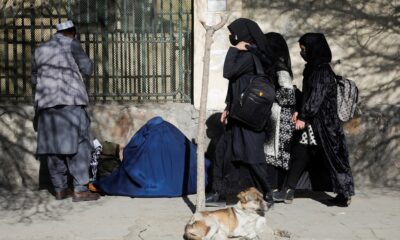
 Latest News4 days ago
Latest News4 days agoInjustices against Afghan women threaten global equality: US
-

 Sport3 days ago
Sport3 days agoATN to broadcast exciting 2025 ICC Champions Trophy live in Afghanistan


